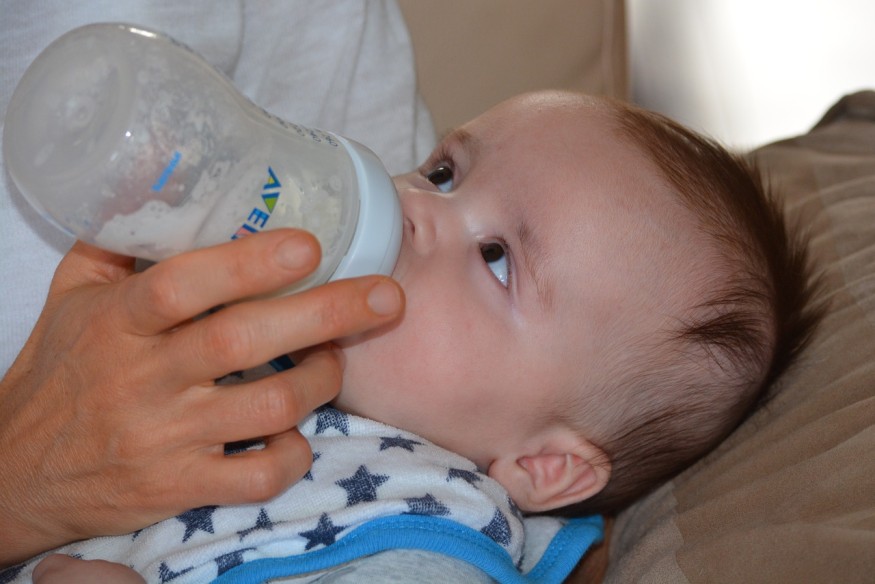Mothers, beware: a study showed that babies may be drinking millions of microplastic particles a day from warming and shaking the milk from formula bottles.
A bottle of formula milk for your baby is supposed to provide fat and vitamins for growth and development. However, in warming and shaking the milk formula, millions of microplastic particles may have been released from the lining of formula bottles. The microplastics may get caught in the liquid and eventually ends off in your baby's body. Implications of these microplastics to the health are yet unknown. The findings of the study were published in Nature Food on October 19.

The Microplastic Particles From the Formula Bottle
Researchers from Trinity College Dublin studied ten types of polypropylene baby bottles in the lab, which represent two-thirds of formula bottles in the global market.
The study team found out that formula bottles release between 1.3 million and 16.2 million particles per liter of fluid. They also estimated that based on the rate of formula and breastfeeding consumption worldwide, an average baby consumes 1.6 million particles every day.
The study also revealed that figure per nation varies. In North America, an average baby ingests 2.3 million particles a day. In Europe, the figure is 2.6 million, and France, Netherlands, and Belgium's babies take in around 4 million per day.
The estimation is based on the World Health Organization's protocol for safe preparation of baby formula. The process involves sterilizing an empty bottle in boiling water, drying it, letting it cool, then putting in the water at 70 degrees Celsius (158 degrees Fahrenheit). After the powder is added, the bottle is then shaken and let cool for consumption. The research team filtered the liquid and counted the microplastics on it.
The study team also did the three preparations: baby formula, tap water, and deionized water, and found that each resulted in a similar figure.
The team also found nano-plastics on the fluids.
The researchers had their counting techniques verified to an independent laboratory. The laboratory results showed a mean value of 4.3 million particles per liter compared to the research team's findings, which was 4 million.
Other Alarming Findings
The team also found out that the higher the temperature in their preparations, the more particles are released. The water heated even to room temperature (25 degrees centigrade) and shaken in the bottle caused the plastic to shed 600,000 particles per liter. Mechanical agitation of the liquid against the bottle is enough to shed off microplastics, Trinity College Dublin materials engineer John Boland, coauthor and coauthor of the study, reported.
Sterilization of the bottle at 70 degrees C sheds up to 16.2 million microplastics per liter. The sterilization worsens the microplastic formation, Boland said.
The same bottles repeatedly tested in three weeks kept releasing particles over time. There may be days that it may release fewer, but on some days, it would release more.
The Polypropylene Material of the Formula Bottle
According to Boland, polypropylene is a rubbery polymer made of layers of a tougher crystalline material and amorphous materials. The amorphous material sheds of quickly. As the formula is repeatedly prepared, the hot water sheds the layers of the polypropylene.
The study did not determine the implication of microplastics on babies' health. The impact of microplastics on humans is still unknown. It can get in the lung tissue if you breathe it or the stool if eaten, but we do not know what it is doing in there, Deonie Allen, who studies microplastics at the University of Strathclyde said.
Ten years ago, formula bottle manufacturers shifted to polypropylene because bisphenol A or BPA, a component of polycarbonate baby bottles, which causes children's developmental problems.
Recommendation To Minimize Microplastic Shedding
Boland recommends these steps to minimize shedding of the microplastics from the baby's formula bottle:
- After sterilizing a bottle in boiling water, rinse it three more times in sterilized room temperature water.
- Prepare the formula in a non-plastic contained with at least 70 degrees C of water. Let cool at room temperature, then transfer to a formula bottle.
- Never is a microwave oven to heat anything with a plastic container
Check out for more news and information on Microplastics on Nature World News.
© 2025 NatureWorldNews.com All rights reserved. Do not reproduce without permission.





